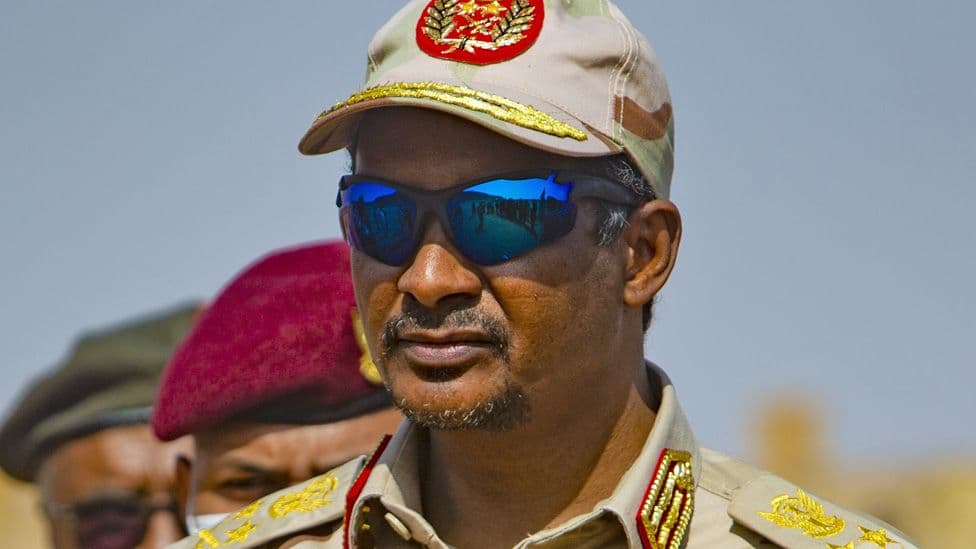We're loading the full news article for you. This includes the article content, images, author information, and related articles.
The African Union has mandated a fact-finding mission to investigate widespread atrocities in Sudan's El Fasher, a crisis escalating regional instability and compounding humanitarian challenges for Kenya and its neighbours.

The African Union's Peace and Security Council (PSC) has directed an urgent fact-finding mission to Sudan following alarming reports of mass atrocities in El Fasher, North Darfur, after its fall to the paramilitary Rapid Support Forces (RSF). In an emergency meeting held on Monday, 28 October 2025, the council condemned the reported summary executions, ethnically motivated killings, and widespread violence against civilians, demanding an immediate cessation of hostilities.
The mission, to be undertaken by the AU's Special Envoy on the Prevention of Genocide and Other Mass Atrocities, Adama Dieng, is tasked with investigating the grave human rights violations and reporting back to the council with recommendations within three weeks. This move signals mounting international pressure on the RSF, which seized control of the strategic city on Sunday, 26 October 2025, after an 18-month siege that has plunged the population into a catastrophic humanitarian crisis.
Sudan is now the world's largest humanitarian crisis, with over 30 million people—more than half the population—requiring urgent aid. The conflict, which erupted in April 2023, has created the fastest-growing displacement crisis globally, forcing over 12 million people from their homes. Nearly 4 million of these have fled to neighbouring countries, placing immense strain on already fragile states in the region.
In El Fasher, the situation is particularly dire. The city, once a relative safe haven for over 1.5 million people, including hundreds of thousands of internally displaced persons (IDPs), has become a killing field. The United Nations and other international bodies have received credible reports of house-to-house raids, summary executions of civilians attempting to flee, and the targeting of hospitals and IDP camps. The World Health Organization (WHO) reported the killing of more than 460 patients and companions at a single hospital. With the city cut off from humanitarian aid since February 2025, famine conditions are spreading, and diseases like cholera are rampant.
The escalating conflict in Sudan poses significant security and humanitarian challenges for Kenya and the wider East African region. The influx of nearly 4 million refugees into neighbouring countries, including South Sudan and Ethiopia, threatens to destabilize a region already grappling with its own conflicts and economic pressures. This mass displacement strains resources, heightens cross-border tensions, and creates fertile ground for the proliferation of illicit arms.
Kenya has historically played a central role in regional peace initiatives through the Intergovernmental Authority on Development (IGAD). President William Ruto was appointed in mid-2023 to lead a quartet—comprising Kenya, South Sudan, Djibouti, and Ethiopia—to mediate the conflict. However, these efforts have been complicated by accusations from Sudan's military leadership that Kenya favors the RSF, a claim Nairobi has consistently denied while pledging neutrality. In May 2025, the Kenyan-led committee was dissolved, with responsibility for the peace process reverting to the broader IGAD and AU structures.
The AU's latest intervention underscores the failure of previous diplomatic tracks and the urgent need for a unified international response. The PSC communiqué strongly condemned any external interference fueling the conflict and called for a coordinated mechanism between the AU, UN, IGAD, and the Quad (Egypt, Saudi Arabia, UAE, US) to harmonize peace efforts. For Kenya, the deepening crisis on its northern flank is not a distant problem but a direct threat to regional stability, demanding sustained diplomatic engagement and preparedness for further humanitarian fallout.
The AU's decision to dispatch a fact-finding mission is a critical step towards ensuring accountability for the atrocities committed. Human rights organizations have documented a pattern of ethnically targeted attacks by the RSF and their allied militias against non-Arab communities in Darfur, which they warn could amount to ethnic cleansing and acts of genocide. The international community, including the European Union and the UN Security Council, which is set to hold an emergency meeting, has echoed the AU's condemnation and calls for justice. The success of the AU's mission and subsequent actions will be a crucial test of the continent's ability to enforce its principle of non-indifference and bring an end to the devastating cycle of impunity in Sudan.
Keep the conversation in one place—threads here stay linked to the story and in the forums.
Sign in to start a discussion
Start a conversation about this story and keep it linked here.
Other hot threads
E-sports and Gaming Community in Kenya
Active 9 months ago
The Role of Technology in Modern Agriculture (AgriTech)
Active 9 months ago
Popular Recreational Activities Across Counties
Active 9 months ago
Investing in Youth Sports Development Programs
Active 9 months ago